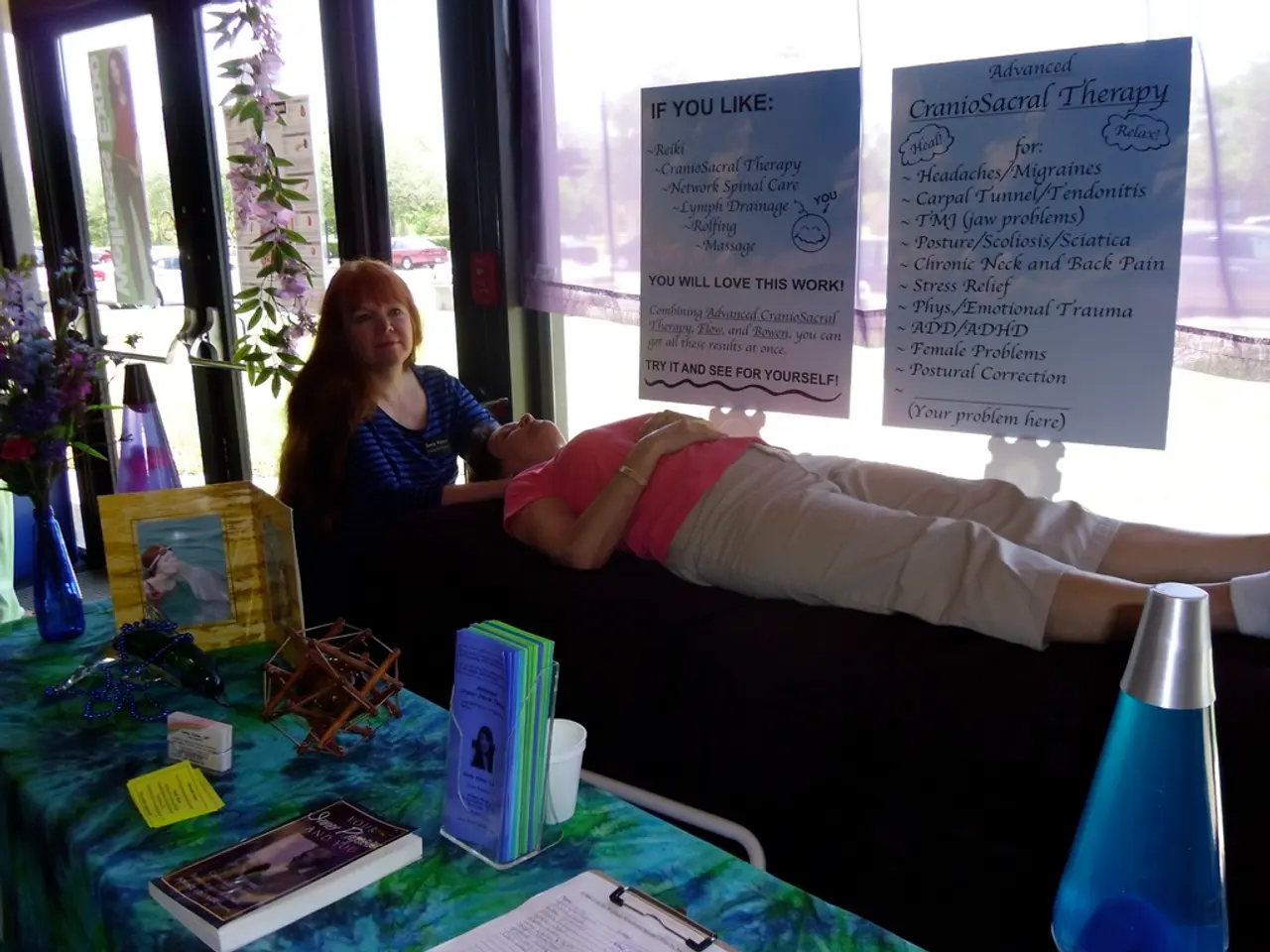Relaxed Existence: Exploring Holistic Methods to Manage Stress in the Year 2025
In the fast-paced world of 2025, stress management has evolved into a multidimensional approach that acknowledges the interconnectedness of various aspects of well-being. This approach, aimed at promoting a stress-free lifestyle, integrates mindfulness, nutrition, exercise, sleep, time in nature, nurturing relationships, and mindful digital engagement.
**Mindfulness and Mind-Body Practices**
At the heart of this holistic strategy lies Mindfulness-Based Stress Reduction (MBSR), a programme that trains individuals in present-moment awareness through practices such as meditation, body scanning, and gentle yoga. By activating the parasympathetic nervous system, these practices build resilience against stress and improve emotional regulation [1][2]. Additionally, yoga, Tai Chi, and Qigong, with their combination of movement, breath, and meditation, release tension, improve flexibility, and foster mental clarity [1][3].
**Nutrition**
A balanced, anti-inflammatory diet plays a crucial role in stress management. Prioritising whole foods—fruits, vegetables, lean proteins, and healthy fats—provides stable energy and mood, while limiting processed foods, excess sugar, and caffeine can help regulate stress hormones [1]. Hydration, too, is essential, as adequate water intake supports cognitive function and physical health, both of which influence stress tolerance.
**Exercise**
Regular physical activity, whether moderate exercise like walking, cycling, or swimming, or structured practices like yoga or tai chi, promotes the release of endorphins and reduces cortisol, the body’s primary stress hormone [1][3]. Consistency is key, with even 20–30 minutes of daily movement significantly lowering stress and improving sleep quality [1].
**Sleep**
Establishing good sleep hygiene is fundamental to emotional resilience and stress recovery. This includes maintaining a regular sleep schedule, creating a restful environment, and avoiding screens before bed. A mindful wind-down, such as gentle stretching, deep breathing, or reading, can ease the transition to sleep and reduce nighttime anxiety [1].
**Nature**
Spending time in green spaces, whether parks, forests, or gardens, has been shown to lower cortisol, reduce rumination, and enhance mood [1]. Activities like forest bathing (shinrin-yoku) or simple walks in natural settings can foster calm and restore attention [1].
**Relationships**
Maintaining strong connections with family, friends, and community provides emotional support against stress. Open communication and shared activities reinforce a sense of belonging [1]. Balancing social engagement with personal space is essential to avoid relational stress while nurturing meaningful bonds.
**Digital Detox**
Taking regular breaks from technology can help clear the mind, reduce feelings of information overload, and improve overall well-being. A digital detox, such as setting limits on screen time or designating "tech-free" zones, can help reduce stress. Prioritising in-person interactions and hobbies over passive scrolling can further improve mental health.
**Integrative Lifestyle Approach**
A stress-free life is not about perfection but harmony. Daily routines that incorporate elements from each domain create synergistic benefits for mental, emotional, and physical health [1][2][3]. For example, a morning might include a mindful walk in nature, a balanced breakfast, and a brief meditation session; evenings could feature a digital detox, quality time with loved ones, and a calming pre-sleep ritual. Flexibility and self-compassion are key—small, consistent steps across these domains contribute to a stress-free lifestyle.
[1] Hölzel, B. K., & Lazar, S. W. (2010). How does mindfulness meditation work? Proposing mechanisms of action from a conceptual and neural perspective. Frontiers in psychology, 1, 166.
[2] Grossman, P., Niemann, P., Schmidt, S., & Walach, H. (2004). Mindfulness-based stress reduction and health benefits: A meta-analysis. Journal of psychosomatic research, 57(1), 35–43.
[3] Speca, M., Carlson, L. E., & Rauch, S. L. (2010). Mindfulness-based stress reduction for the treatment of anxiety disorders: A comprehensive review. Journal of anxiety disorders, 24(8), 821–831.
- In the year 2025, mental health is essential for overall well-being, with mindfulness-based stress reduction (MBSR) being a key component of stress management.
- MBSR, which involves practices like meditation, body scanning, and yoga, activates the parasympathetic nervous system, promoting resilience against stress and improving emotional regulation.
- Yoga, Tai Chi, and Qigong, with their focus on movement, breath, and meditation, release tension, improve flexibility, and foster mental clarity.
- A balanced, anti-inflammatory diet that prioritizes whole foods and limits processed foods, excess sugar, and caffeine is crucial for stress management.
- Physical exercise, such as walking, cycling, swimming, or structured practices like yoga or tai chi, helps regulate stress hormones and promotes the release of endorphins.
- Establishing good sleep hygiene, including maintaining a regular sleep schedule, creating a restful environment, and avoiding screens before bed, is essential for emotional resilience and stress recovery.
- Spending time in nature, whether in parks, forests, or gardens, reduces stress, rumination, and enhances mood.
- Maintaining strong relationships with family, friends, and community provides emotional support against stress, reinforcing a sense of belonging.
- A digital detox, such as setting limits on screen time or designating "tech-free" zones, can help reduce stress, clear the mind, and improve overall well-being. The focus should be on in-person interactions and hobbies over passive scrolling to further improve mental health and overall wellness.




